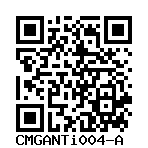SEMD2
CMGANTi004-A
General
Cell Line |
|
| hPSCreg name | CMGANTi004-A |
| Cite as: | CMGANTi004-A (RRID:CVCL_C1SX) |
| Alternative name(s) |
SEMD2
|
| Cell line type | Human induced pluripotent stem cell (hiPSC) |
| Similar lines |
RCMGi011-A (P10L1) Donor diseases: Mucopolysaccharidosis Type IVB autosomal recessive nonsyndromic deafness 12 RCMGi011-B (P10L2) Donor diseases: Mucopolysaccharidosis Type IVB autosomal recessive nonsyndromic deafness 12 |
| Last update | 6th July 2022 |
| User feedback | |
Provider |
|
| Generator | Center of Medical Genetics Antwerp (CMGANT) |
| Owner | Center of Medical Genetics Antwerp (CMGANT) |
| Distributors | |
| Derivation country | Belgium |
External Databases |
|
| BioSamples | SAMEA14370027 |
| Cellosaurus | CVCL_C1SX |
| Wikidata | Q114310969 |
General Information |
|
| Publications | |
| * Is the cell line readily obtainable for third parties? |
Yes Research use: allowed
Clinical use: not allowed
Commercial use: not allowed
|
Donor Information
General Donor Information |
|
| Sex | male |
| Ethnicity | Italian |
Phenotype and Disease related information (Donor) |
|
| Diseases | A disease was diagnosed.
|
| Disease associated phenotypes |
|
| Family history | Yes |
| Is the medical history available upon request? | Publication Cho et al. BGN Mutations in X-Linked Spondyloepimetaphyseal Dysplasia |
| Is clinical information available? | Publication Cho et al. BGN Mutations in X-Linked Spondyloepimetaphyseal Dysplasia |
Karyotyping (Donor) |
|
| Has the donor karyotype been analysed? |
Yes
46, XY. No clinically significant abnormalities observed.
Karyotyping method:
Molecular karyotyping by SNP array
http:// |
Other Genotyping (Donor) |
|
| Is there genome-wide genotyping or functional data available? |
Yes
SNP typing array
Dermal fibroblast DNA sample was genotyped with a HumanCytoSNP-12 assay (Illumina). No clinically significant CNVs observed. |
Donor Relations |
|
| All cell lines of this donor's relatives |
Has brother:
|
External Databases (Donor) |
|
| BioSamples | SAMEA110100335 |
Ethics
| Has informed consent been obtained from the donor of the embryo/tissue from which the pluripotent stem cells have been derived? | Yes |
| Was the consent voluntarily given? | Yes |
| Has the donor been informed that participation will not directly influence their personal treatment? | Yes |
| Can you provide us with a copy of the Donor Information Sheet provided to the donor? | No |
| Do you (Depositor/Provider) hold the original Donor Consent Form? | No |
| If you do not hold the Donor Consent Form, do you know who does? | Yes |
| Alternatives to consent are available? | Yes |
| Alternatives to consent | |
| Alternative consent approval number | |
| Please indicate whether the data associated with the donated material has been pseudonymised or anonymised. | pseudonymised |
| Does consent explicitly allow the derivation of pluripotent stem cells? | Yes |
| Does consent prevent CELLS DERIVED FROM THE DONATED BIOSAMPLE from being made available to researchers anywhere in the world? | No |
| How may genetic information associated with the cell line be accessed? | Controlled Access |
| Will the donor expect to receive financial benefit, beyond reasonable expenses, in return for donating the biosample? | No |
| Does the consent permit the donor, upon withdrawal of consent, to stop the use of the derived cell line(s) that have already been created from donated samples? | Yes |
| Has a favourable opinion been obtained from a research ethics committee, or other ethics review panel, in relation to the Research Protocol including the consent provisions? | Yes |
| Name of accrediting authority involved? | Ethical committee Antwerp University Hospital |
| Approval number | 11/8/79 2018.09.17 |
| For generation of the cell line, who was the supplier of any recombined DNA vectors or commercial kits used? |
hIPSC Derivation
General |
|
| Source cell type | |
Reprogramming method |
|
| Vector type | Non-integrating |
| Vector | Sendai virus |
| Is reprogramming vector detectable? |
No |
| Methods used |
PCR
|
Vector free reprogramming |
|
Other |
|
| Derived under xeno-free conditions |
No |
| Derived under GMP? |
Yes |
| Available as clinical grade? |
No |
Culture Conditions
| Surface coating | Matrigel/Geltrex |
| Feeder cells |
No |
| Passage method |
Enzyme-free cell dissociation
EDTA
|
| O2 Concentration | 5 % |
| CO2 Concentration | 5 % |
| Medium |
Essential 8™ Flex
|
| Has Rock inhibitor (Y27632) been used at passage previously with this cell line? | Yes |
| Has Rock inhibitor (Y27632) been used at cryo previously with this cell line? | No |
| Has Rock inhibitor (Y27632) been used at thaw previously with this cell line? | Yes |
Characterisation
Analysis of Undifferentiated Cells
| Marker | Expressed | Immunostaining | RT-PCR | Flow Cytometry | Enzymatic Assay | Expression Profiles |
| POU5F1 (OCT-4) |
Yes |
|
|
|||
| NANOG |
Yes |
|
|
|||
| SOX2 |
Yes |
|
|
|||
| TRA 1-60 |
Yes |
|
|
|||
| TRA 1-81 |
Yes |
|
Differentiation Potency
In vitro directed differentiation
In vitro directed differentiation
In vitro directed differentiation
Microbiology / Virus Screening |
|
| Mycoplasma | Negative |
Genotyping
Karyotyping (Cell Line) |
|
| Has the cell line karyotype been analysed? |
Yes
46, XY. No clinically relevant abnormalities observed.
Passage number: 11
Karyotyping method:
Molecular karyotyping by SNP array
http:// |
Other Genotyping (Cell Line) |
|
| Is there genome-wide genotyping or functional data available? |
Yes
SNP typing array
DNA sample was genotyped with a HumanCytoSNP-12 assay (Illumina). No clinically significant CNVs observed. |


Login to share your feedback, experiences or results with the research community.